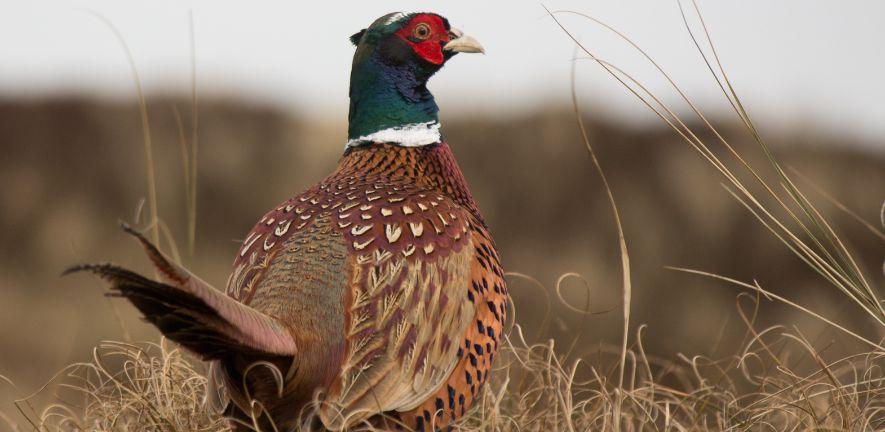
Submitted by Abigail Youngman on Tue, 11/03/2025 - 11:32
Professor Rhys Green, Emeritus Honorary Professor of Conservation Science here at the Dept of Zoology, is the lead author of two reports, published in the journal Conservation Evidence, that conclude that a voluntary pledge made by UK shooting organisations in 2020 to replace lead shot with non-toxic alternatives by 2025 has failed.
The pledge, made in February 2020 by the UK’s nine leading game shooting and rural organisations, aimed to benefit wildlife and the environment and ensure a market for the healthiest game meat food products.
The Cambridge team, working with the University of the Highlands and Islands, has consistently shown that lead shot was not being phased out quickly enough to achieve a complete voluntary transition to non-toxic ammunition by 2025.
In 2025, the study - called SHOT-SWITCH - found that of 171 pheasants found to contain shot, 99% had been killed with lead ammunition.
“Many members of the shooting community had hoped that the voluntary pledge away from lead ammunition would avert the need for regulation. But the voluntary route has now been tested - with efforts made by many people - and it has not been successful,” said Professor Green.
Eating game meat killed using lead shot will expose people unnecessarily to additional dietary lead. Lead is toxic to humans even in very small concentrations; the development of the nervous system in young and unborn children is especially sensitive to its effects. As a result, many food safety agencies now advise that young children and pregnant women should avoid, or minimise, eating game meat from animals killed using lead ammunition.
The studies were part-funded by the RSPB, Waitrose & Partners, and an anonymous donor. They were supported by a group of unpaid volunteers, who are co-authors of the reports.
Read the reports:
Green, R.E. et al: ‘The proportion of common pheasants shot using lead shotgun ammunition in Britain has barely changed despite five years of voluntary efforts to switch from lead to non-lead ammunition.’ March 2025, Conservation Evidence. DOI: 10.52201/CEJ22/EXYS6184
Green, R.E. et al.: ‘Sampling of red grouse carcasses in Britain indicates no progress during an intended five-year voluntary transition from lead to non-lead shotgun ammunition.’ February 2025, Conservation Evidence. DOI: 10.52201/CEJ22/YYWM1722
